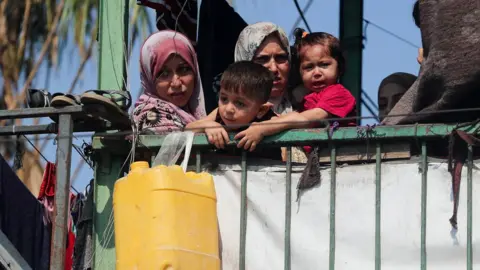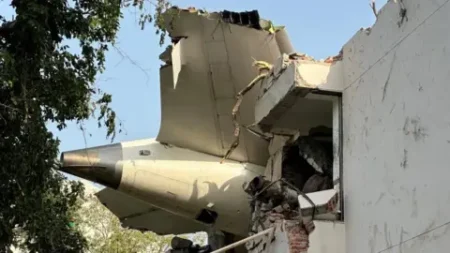Recent developments regarding the ongoing negotiations for a ceasefire between Israel and Hamas indicate that discussions are teetering on the edge of collapse. According to Palestinian officials familiar with the situation, the negotiations, which are being held in Doha, Qatar, have revealed significant divisions between the parties and a series of unresolved contentious issues.
One senior Palestinian official has expressed that the Israeli delegation, led by Prime Minister Benjamin Netanyahu, appears to be uncooperative, claiming that Israel has merely sought to “buy time” during Netanyahu’s recent diplomatic visit to Washington. While Netanyahu projected a hopeful attitude about concluding an agreement shortly after his return, insiders suggest that a critical delay is being orchestrated by the Israeli side.
Key issues under discussion include the withdrawal of Israeli troops from Gaza and the facilitation of humanitarian aid distribution amidst the continued humanitarian crisis. The proposed deal, as articulated by Netanyahu, involves the release of a substantial portion of hostages that Hamas currently holds, aiming for a truce that could last up to 60 days. However, the shape and dimensions of this potential ceasefire appear increasingly murky as talks progress.
Negotiations have unfolded across several indirect rounds, facilitated by Qatar’s Prime Minister Sheikh Mohammed bin Abdul Rahman Al Thani and senior Egyptian intelligence officials, with the involvement of US envoy Brett McGurk for added influence. Yet, despite numerous exchanges of messages between the delegations—who have been physically separated but communicating through mediators—discussions reportedly hit roadblocks as both sides carried differing expectations over aid distribution mechanisms and troop withdrawals.
As the dialogue continues, there are critical points of contention. Hamas insists that humanitarian aid must be facilitated by United Nations agencies and international relief organizations, aiming for transparency and accountability. In contrast, Israel insists upon utilizing a controversial mechanism backed by itself and the United States—the Gaza Humanitarian Foundation (GHF)—for aid distribution. While some progress has been hinted at by mediators, no formal agreement has materialized thus far.
Another significant sticking point in negotiations is the extent of Israeli military withdrawal. Reports indicate that Israeli negotiators proposed maintaining a limited “buffer zone” within Gaza after a complete withdrawal, reportedly greater than previously indicated, leading to concerns about the sincerity of Israel’s commitment to the negotiation process. This map revealed deeper military positioning than what had initially been communicated, raising red flags about ongoing Israeli intentions. Such discrepancies have only added to the mistrust felt by Hamas officials and further obstructed the potential for resolution.
Accusations of bad faith are rampant, with Palestinian negotiators asserting that the Israeli delegation is deliberately stalling to maintain a facade of productive talks while pursuing a broader strategy that aims at forced displacement. This claim is augmented by Israeli Defense Minister Israel Katz’s recent comments indicating plans for a relocation camp intended to house a large influx of Palestinian refugees, heightening tensions and criticisms from within the international community.
In light of these developments, Palestinian representatives have called upon the US to increase its pressure on Israel to yield meaningful concessions that would facilitate a credible agreement. Without such intervention, fears abound regarding the imminent failure of the Doha negotiations, which could exacerbate the already dire humanitarian situation on the ground and complicate broader efforts toward achieving a lasting ceasefire.
As the clock ticks down on these crucial negotiations, diplomats in Doha have signaled that while there exists a narrow window of opportunity for a durable compromise, the current situation remains highly fragile. A regional representative remarked on the precariousness of the process, underscoring that significant changes are urgently required to avert the impending collapse of negotiations, a situation reminiscent of challenges faced since the initiation of hostilities following the Hamas-led attack on Israel on October 7, 2023.
Consequently, the situation in Gaza continues to deteriorate, with escalating casualties documented since the start of the conflict and further complicating the quest for a resolution to a crisis that has now persisted for over 21 months.











